More Understanding, Less Prejudice

The Chinese are Free
Ankur Arya (middle)
22, MBBS, Xiamen University
Before coming here, I got to know China from the news, movies and Chinese commodities. I had the impression that many Chinese people were experts in Kung Fu, Chinese people were short, and Chinese products were of poor quality.
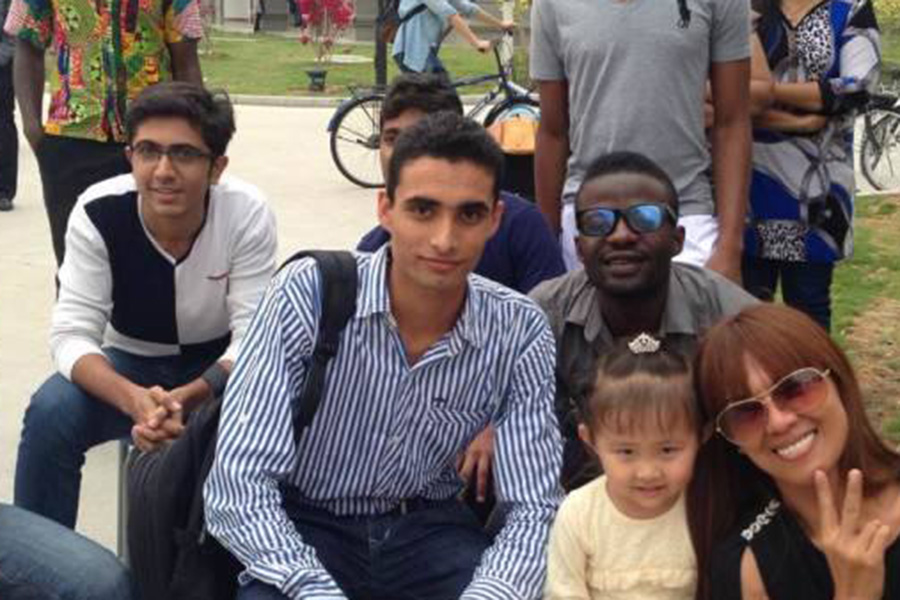
After coming here, I came to know that China is not what we thought. Their products are awesome. Also, it was surprising to find that only very few Chinese people practice martial arts here. That’s really heart-breaking for me, because I had dreamt of learning some martial arts.
I’m vegetarian and fond of China’s vegetable hot pot. When I go to restaurants with my friends, they always order vegetarian dishes for me and make sure I can eat the dish. It’s really touching.
Many in India think China is not a democratic country, so they believe that the Chinese, who have no freedom, are living miserable lives. However, that is wrong. Since I came here, I have come to know that Chinese people can do whatever they want, and their government is doing good for their people and their country. The country has a good system, and it works. Their development has amazed anyone who visits here.
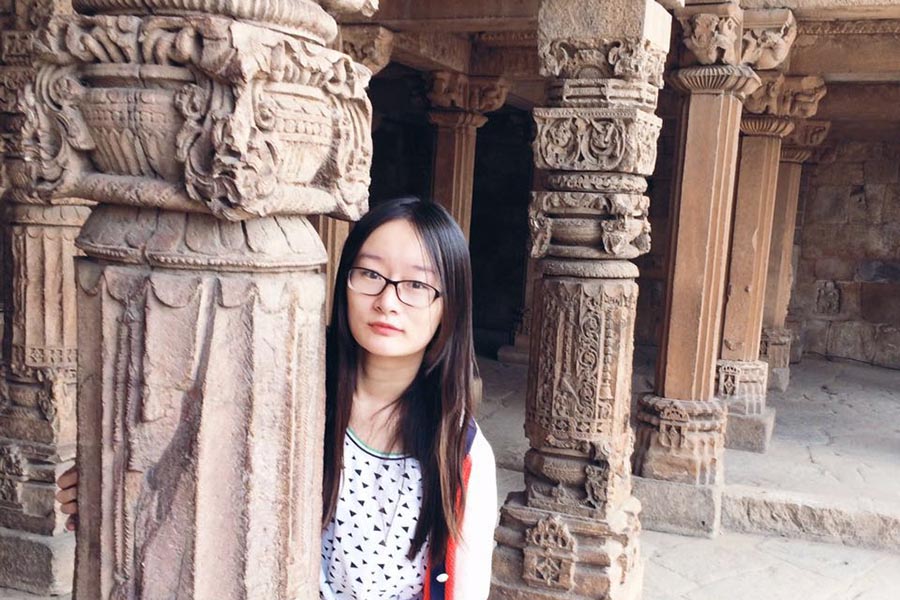
India: Another World
Wang Tianke
Shanghai International Studies University
My ten-month stay in India was an experience of a totally different world.
Indians have a daily routine different from that of the Chinese. They eat supper late, so I feel the day is longer. We had class only in the morning, which left afternoons and evenings free.
When I traveled to other nations, I focused more on the natural scenery. But in India, I turned to religious architecture. India has both magnificent and modest temples, where one can see a lot of people queuing in long lines to worship.
Although I am not religious, I am very interested in Indians’ religious lives. Young Indian people are willing to spread their culture worldwide.
In some cinema halls, before the movie began, the audience was required to stand up and sing India’s national anthem. This surprised me. They would suddenly stand up and sing the national anthem solemnly.
Affected by the ambience, my friends and I also stood up to listen to them quietly. We felt that Indians love their country very much.
Once, we watched a religious ceremony at night on the banks of the river Ganges. When the lamps were ready to be lit, those seated rose and swarmed to light the lamps. In their faces illuminated by the flames, I saw their piety and respect for their gods.

Cooperative Chinese
Maitri Sharma
29, Basic Chinese Language, Global Village Chinese Institute
Fascinated by Chinese culture, I always wanted to travel in China. When I got to know about the job opportunities and academic environment here, I thought of coming here to study, although I never imagined that China would be such a developed country.
I have been to a few cities such as Tianjin, Guangzhou and Shanghai, but I like Beijing most. The city is a second home to me. I love the people and food in Beijing. Chinese people are honest, punctual and cooperative. I used to think that it would be really difficult to manage here without speaking Chinese, but Chinese people have helped me a lot throughout my time here. Even if they couldn’t speak English, they were there to help me in any way they could.
Once I saw an old man selling pretty jewelry on a street, and I liked two pairs of earrings. Since there was no proper light, I asked him if it were possible to exchange them the next day if I didn’t like them. He told me that he wouldn’t be coming tomorrow because the weather app on his cell phone said that it would rain. I was so happy to see his honesty, and, moreover, it was quite surprising to see how tech-savvy the old man was.
In China, I’ve seen myself growing at every stage, be it academically or personally. I’ve learned a lot from my Chinese friends; for instance, humble nature, politeness and positivity. Young people in China and India have a lot in common. In India, it is important to score well academically to secure a job, which is somewhat similar to the Chinese Gaokao (college entrance exam) where students need to get good scores to make it into a good university. The youngsters in the two countries like to hang out with their pals, and are very loyal to their friends and family. As far as differences are concerned, I feel Chinese youngsters face a little bit more interference from their parents in making career choices, whereas they have more liberty in choosing their life partners. In India, the situation is totally the opposite.
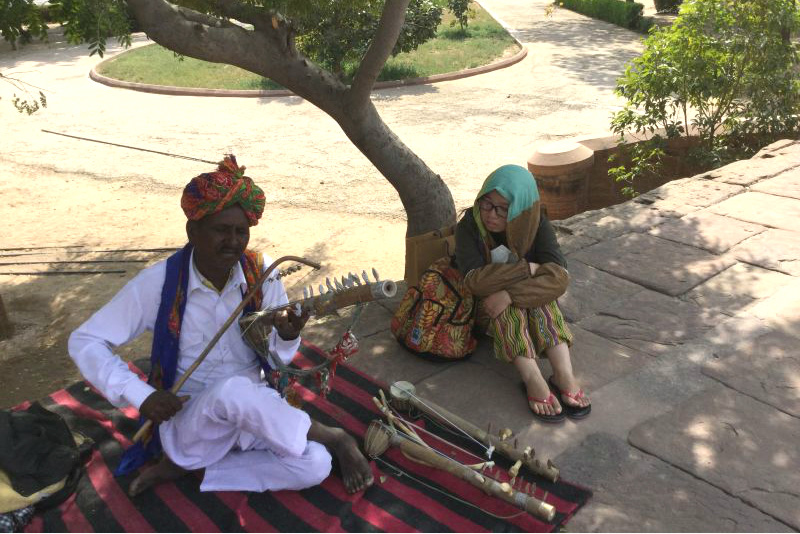
Long Live the Friendship
Chen Caiying (right)
Guangdong University of Foreign Studies
I traveled to many Indian cities because of my strong interest in the country. I had wanted to visit even more places but was advised against it because there were a lot of negative reports about India.
When I visited Cochin, the family hotel I had booked was in a remote place and hard to find. I asked one passerby, who offered to take me there. When we kept walking through isolated places, I felt scared, but finally, he helped me find the hotel.
The media often claims that Indian women have a low social status. But I saw many privileges extended to women, such as men giving their seats to women on buses, and special compartments for women in trains.
My experiences during these travels brought home to me that China and India lack understanding. Their knowledge of each other is still where it was one or even two decades ago.
The Indian teacher in my university, before he came to China, thought China was poor. He asked me whether Chinese women still wrap their feet.
Not long ago, I read an essay by Ji Xianlin (a renowned Chinese linguistics scholar), in which he told the story of his two visits to India. Ji found Indian people were very nice and friendly.
Before we left Nagpur, an old man came to chat with us. He mentioned Mao Zedong, Zhou Enlai and Dwarkanath Kotnis, which reminded me of the friendship between China and India described by Ji.

China Brings Opportunities
Karishma Mahadeo Choudhary
27, MBA, China Europe International Business School
Before coming to China, I always thought of it as a manufacturing hub and a place full of hardworking and dedicated people. I chose to study here because the Chinese market is huge and people here don’t shy away from experimenting. Hence, I opted to study in China to see and learn all these things.
The city I like best is also the city that I currently live in – Shanghai. Shanghai is a city which has a blend of Chinese and international flavor. Being the financial capital of China, this place has immense opportunities for youngsters.
On the second day after I arrived in Shanghai, I dined with ten Chinese friends. Firstly, I was surprised by the amount of food they had ordered. It was impossible for 11 people to finish all that in one go. Secondly, they all made me eat and taste all the dishes and by the end of the dinner I was so full that I could hardly move from my seat.
The biggest similarities between China and India would be the fact that the youngsters do respect their own culture, even though they have tastes and habits different from those of their preceding generations.
After coming to China, I have become more patient and have learnt to deal with uncertainties in life in a much better way. I would definitely want to stay in China to work after my MBA as this country offers many interesting opportunities.
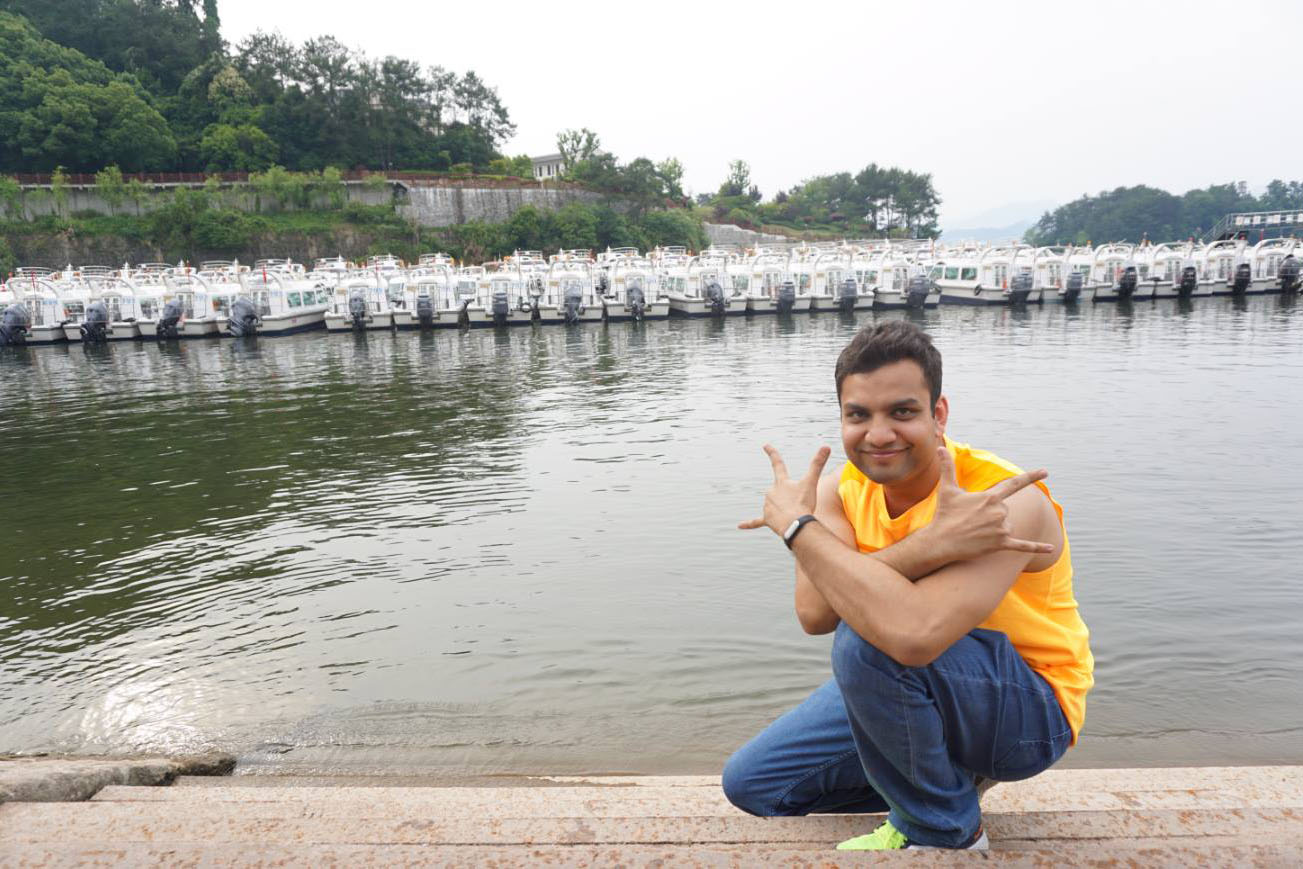
Welcome to West Lake in Hangzhou
Vinay Sharma 25, Guanghua Law School, Zhejiang University
Chinese people are helpful and friendly. When I came to China for the first time, I was going to take a train to Hangzhou after my arrival in Shanghai. However, I was unable to get to the ticket counter at the Shanghai Railway Station, and I couldn’t speak any Chinese words, not even “Ni hao (hello)”. Then I met a Chinese guy named Jack Li, and he helped me buy a train ticket and sent me to the train platform. I am still in contact with him.
After receiving my Master’s, I want to earn my Ph.D. at Zhejiang University. The best thing about the university is that there are students from different parts of the world and almost all Chinese students can speak fluent English, so I don’t feel any language barrier on the campus. I like hiking with my friends, and I’ve joined some hiking groups. Mountain biking is also one of my hobbies. It’s very adventurous and interesting, but not so common in India.
I love Hangzhou so much. The city is not very polluted, and the transportation there is good. The natural scenery in Hangzhou is picturesque, and what I like most is West Lake. I go to West Lake almost every evening. Besides, I think Hangzhou is the only place where all types of weather (rain, wind, cold, and super hot) can possibly be seen in one week.
I spent three days with a Chinese family during the 2016 Chinese New Year. It was a great time with the family – husband, wife and twin sons. During the festival, all the family members, including the couple’s relatives, had a big get-together, which reminded me of Diwali in India when we visit our relatives. We all went outside to visit the Beijing- Hangzhou Grand Canal and Canal Museum, and we had a meal at an Indian restaurant. They are just like my family in Hangzhou. Sometimes, when I miss my home in India, I prefer to talk to them and meet them.
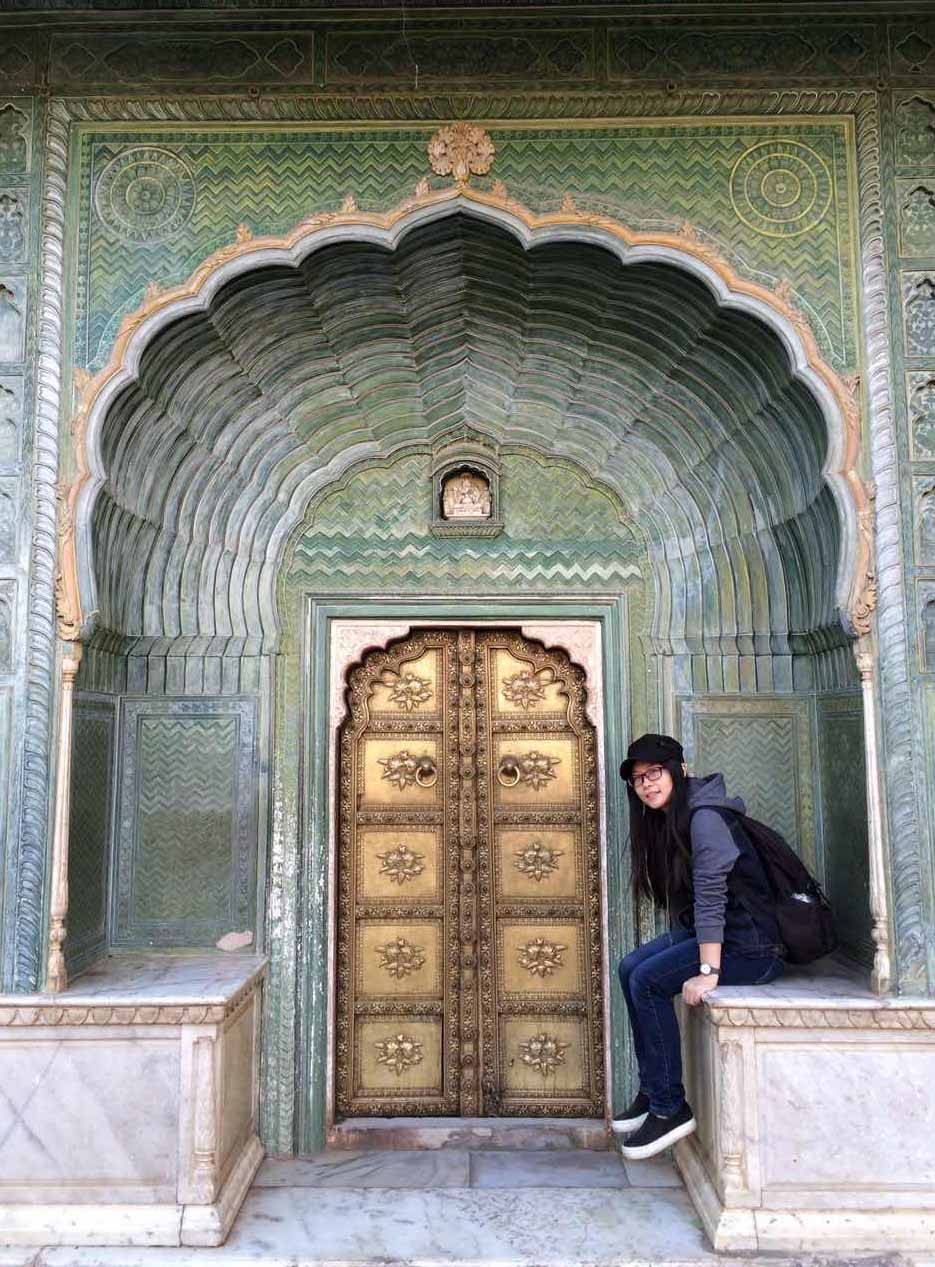
Show Respect to the Guard of Tradition
Zheng Kexin
Shanghai International Studies University
I traveled to Darjeeling, a hill resort in India. I liked the place very much. The scenery is beautiful and the food delicious. I enjoyed every meal I ate there.
On the trip, I came across an old man in a puppet museum. He was the founder of the museum, and was in his eighties.
He introduced the exhibits and the puppet-making process to us, and from what he told us, his life has been dedicated to promoting Indian culture. We were moved by the elderly man.
We bought some souvenirs but didn’t bargain as usual because we wanted to give what support we could to this respectable keeper of tradition.
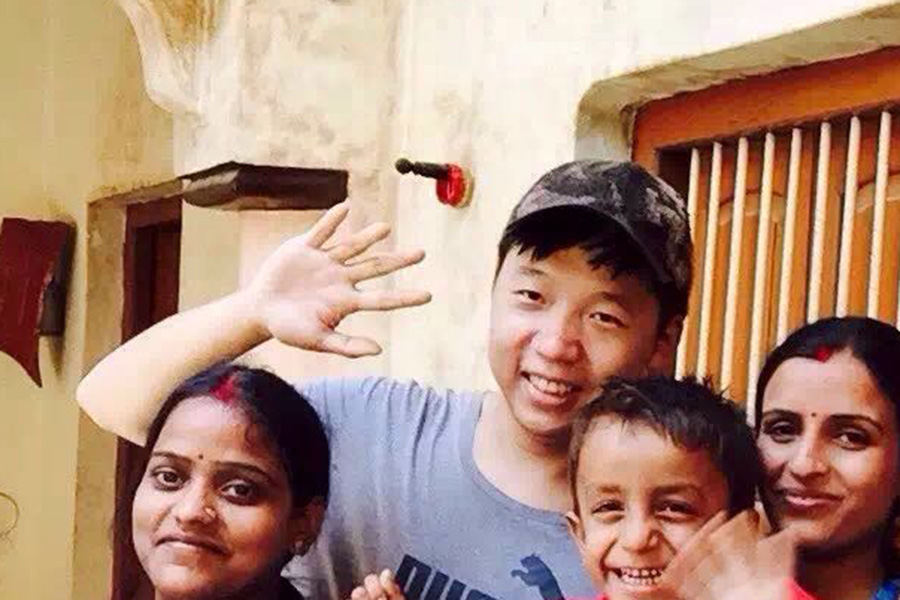
Hospitable Indian People
Song Wuqiao (middle)
Peking University
My hometown is Chengdu City in Sichuan Province. In India,I was very happy to find many restaurants offering a dish named “fried noodles of Sichuan.”
Indians and Chinese are very different. They are both hospitable, but Indian people are even more so. Sometimes, you just say “Hello” to them, and then they will invite you to sing and dance.
One time, when we traveled in Mumbai, I carelessly left my wallet in a restaurant. At midnight that day, someone knocked on my door and asked whether one of us had lost a wallet.
It turned out that after the owner of the restaurant found my wallet and got to know that it belonged to a Chinese tourist, he checked the hotels one after another, until finally, he found me at midnight. I was so moved that it greatly changed my impression of Indians.
Indian people have a very “distinctive” sense of time. When they say one minute, it usually stands for half an hour. You will accept it when you get used to it.
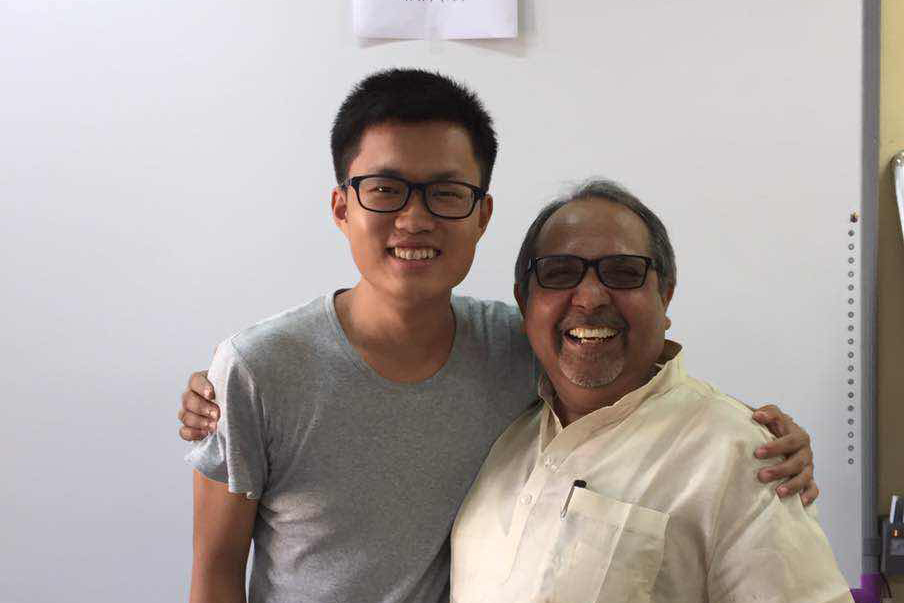
Hello: A Greeting from India
Lin Wenzhi (left)
Shanghai International Studies University
When I arrived in India, I had not been learning Hindi for long, and I couldn’t understand the English spoken by Indians. Hence, I felt very anxious. But when we walked around in Wardha, which is the seat of the Mahatma Gandhi International Hindi University, now and then Indian people would say “Hello” in Chinese to us. One Indian even said “hello” to me in Cantonese.
Thus, the influence of Chinese culture showed in subtle ways. During the ten months of our stay, we taught the chef in the university kitchen to cook “scrambled eggs with tomato” and fry “poached eggs”. He even wanted to learn how to cook noodles with chicken.
Before going to India, I had heard that Indians were not so friendly towards the Chinese. But, in fact, Indian people are very nice. Whenever we wandered around one place for too long, Indians would ask us whether we had lost our way.
